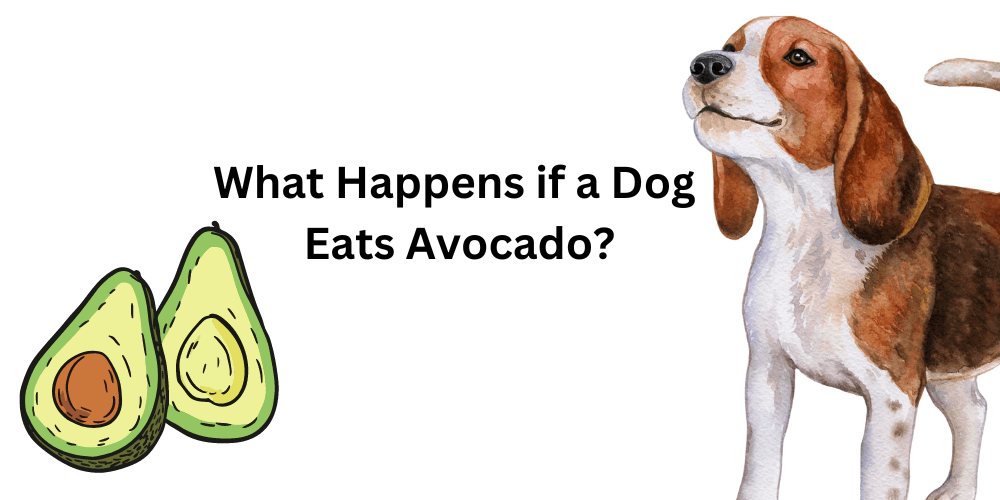Concerned about your dogs well-being, you’d naturally question their food habits. For instance, if can dogs eat avocado? This healthy fruit is a hit among us people, but is it also right for our pets, or can it be dangerous? In these lines, we’ll look into the truths about dogs consuming avocados, possible perils, and helpful tips for keeping your doggie safe if they do munch on some.
What Is Avocado and Why Is It Popular?
Avocados are well-known for their rich, creamy texture and high nutrient content. They are packed with healthy fats, vitamins like C, E, and K, and minerals such as potassium. These health benefits make them a favorite in many human diets, from salads to smoothies.
However, when it comes to dogs, the story isn’t so straightforward. While humans can safely enjoy avocados, it’s important to assess whether dogs can eat avocado and benefit in the same way.
Can Dogs Eat Avocado? The Short Answer
Although avocados in tiny bits won’t typically harm dogs, they’re not the best snack. Avocados contain a toxic, persin, which is prevalent in the leaves, skin, and seed of the fruit. Too much persin is bad for dogs. But, the avocado’s flesh holds very little persin and small portions won’t usually be damaging. Still, this doesn’t mean it’s good to give your dog avocado regularly.
Is Persin Toxic to Dogs?
Persin is the compound that makes avocado potentially dangerous for dogs. While it is safe for humans to consume, in large quantities, persin can cause vomiting, diarrhea, and even heart issues in dogs. The concentration of persin varies between different parts of the avocado:
- High levels of persin are found in the skin, leaves, and pit.
- Low levels of persin are found in the flesh, making it less dangerous but not without risk.
If you’re wondering, can dogs eat avocado without consuming persin? The safest option is to avoid the skin, pit, and leaves altogether.

What Happens if a Dog Eats Avocado?
If your dog eats a small amount of avocado flesh, they may not experience any immediate side effects. However, there are several factors that influence whether avocado will negatively affect your dog:
- Size of the dog: Larger dogs may tolerate avocado better than smaller breeds.
- Amount consumed: A small slice of avocado flesh is unlikely to harm your dog, but large amounts could lead to digestive upset.
- Individual sensitivity: Just like humans, some dogs may be more sensitive to certain foods than others.
Potential Symptoms to Watch For:
- Vomiting
- Diarrhea
- Abdominal discomfort
- Lethargy
If your dog consumes a significant amount of avocado or any part that contains high levels of persin, contact your veterinarian right away
Are Avocado Pits Dangerous for Dogs?
One of the biggest risks when it comes to dogs eating avocado is the pit. Not only does it contain high levels of persin, but it is also a choking hazard. If swallowed, the pit can become lodged in the throat, stomach, or intestines, leading to a potentially life-threatening blockage.
If you think your dog has swallowed an avocado pit, look out for symptoms such as:
- Gagging or choking
- Loss of appetite
- Constipation
- Abdominal pain
Seek immediate veterinary care if you suspect your dog has eaten an avocado pit.
Can Dogs Eat Avocado Safely?
If you’re still asking, can dogs eat avocado safely? The answer depends on several factors. In general, it’s best to avoid feeding your dog avocado. While small amounts of avocado flesh may be safe, the risks associated with the skin, pit, and potential persin toxicity outweigh the benefits.
Instead, consider offering your dog other safe fruits like:
- Apples (without seeds)
- Bananas
- Blueberries
- Watermelon (without seeds)
These alternatives provide your dog with valuable nutrients without the potential dangers associated with avocado.
Health Benefits of Avocado for Dogs: Myth or Fact?
There’s a misconception that avocado can provide dogs with the same health benefits it does for humans, such as healthy fats and antioxidants. While avocado is nutrient-dense, there are better, safer sources of these nutrients for dogs. Fish oil, for example, is an excellent source of omega-3 fatty acids, which support a shiny coat and healthy skin.
For dogs, the risks of feeding avocado far outweigh any potential health benefits. If you want to incorporate healthy fats or antioxidants into your dog’s diet, consult your vet for safer alternatives.
What to Do if Your Dog Eats Avocado
Accidents happen, and if your dog gets into avocado, it’s important to remain calm. Here’s what to do:
- Assess the situation: Determine how much avocado your dog ate and whether they consumed any part of the pit, skin, or leaves.
- Watch for symptoms: Monitor your dog for any signs of distress such as vomiting, diarrhea, or lethargy.
- Contact your vet: If your dog has eaten a large amount or consumed any part of the pit or skin, call your vet immediately for advice.
In summary, while dogs can eat avocado flesh in very small amounts, it’s not a recommended snack due to the risk of persin toxicity and the potential for choking hazards with the pit. There are plenty of safer, healthier treat options available for your dog that provide the same benefits without the risks.
So, next time you’re enjoying some avocado toast, it’s best to keep the avocado away from your pup!
